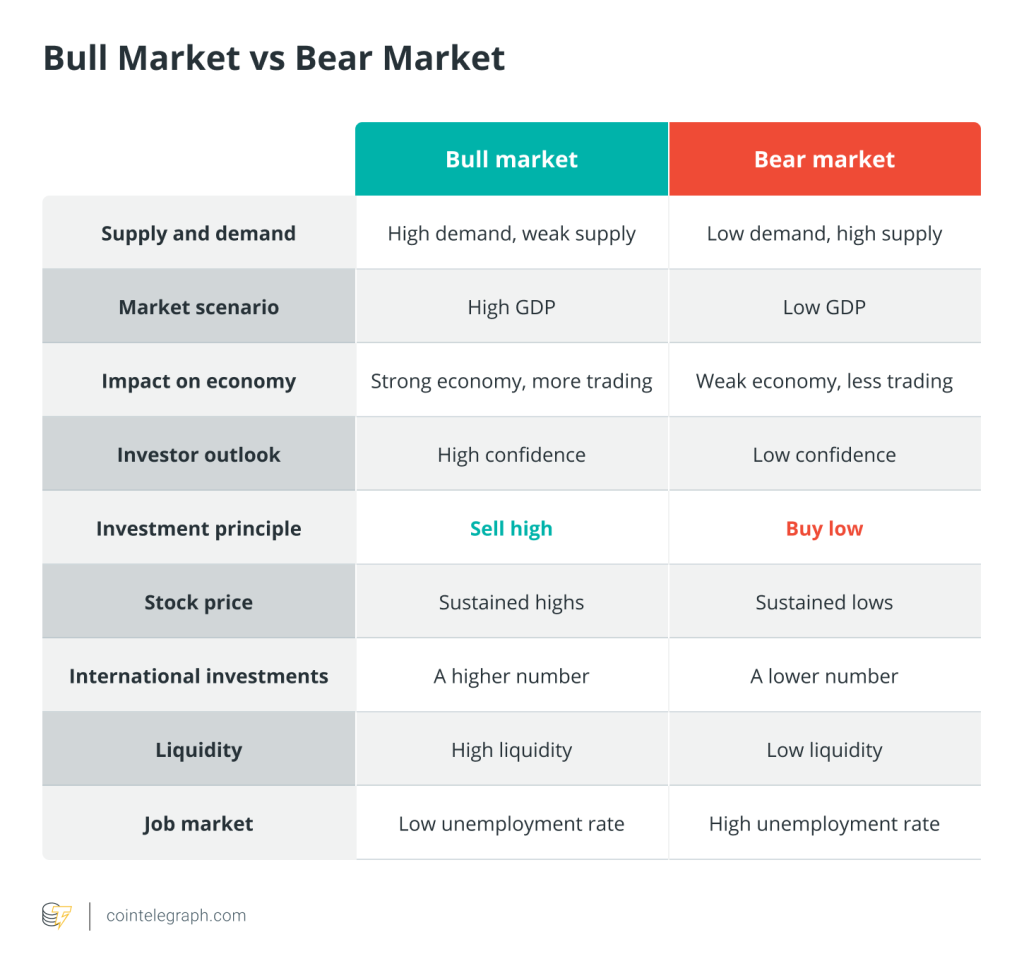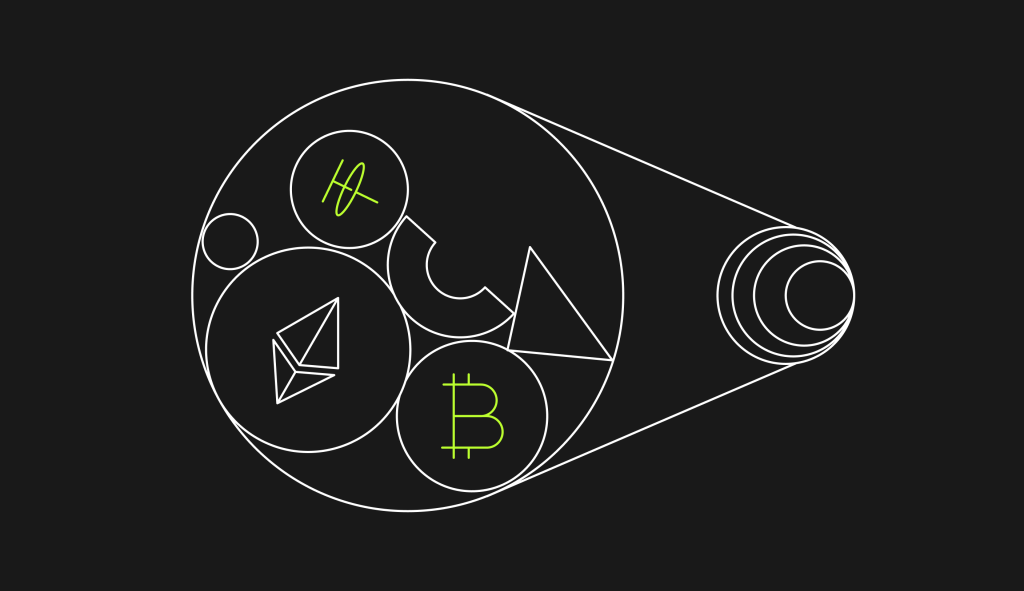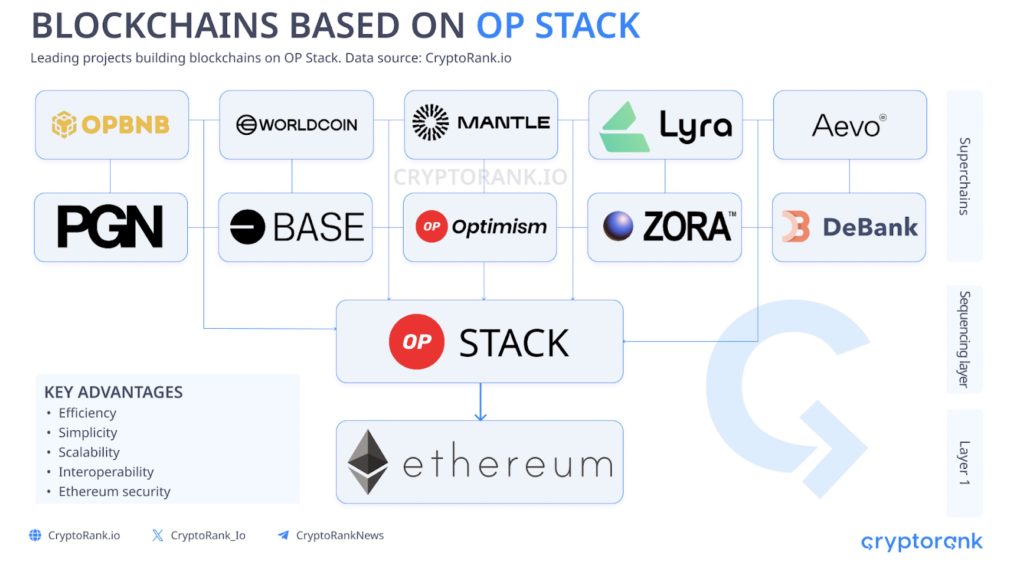3 bull market narratives for 2024 that you haven’t heard about yet

Layer-3s, superchains, appchains and chain development kits (CDKs) are just some of the developments in blockchain primed to take off in the year ahead.

Every market cycle in cryptocurrency is made up of new narratives that demand investors’ attention and money. Being aware of these movements is strategically necessary for both individuals and companies.
Looking back at previous bull cycles, it’s clear that there are always new narratives to capture investors’ attention and resources, shaping the development of the crypto market for the coming years.
In 2017, the narrative of initial coin offerings (ICOs) stood out. In 2019, the focus was on decentralized finance (DeFi). In 2021, we witnessed the rise of nonfungible tokens (NFTs) and the metaverse.
Related: The ‘WAGMI’ mentality is undermining crypto
What will be the main narratives of 2024? On social media, it’s easy to identify some obvious trends — such as Ordinals, restaking, airdrops, real-world assets (RWAs), oracles and GameFi.
However, there are some trends that your favorite influencers may be missing Here are three theses that stand out.
2024 will be the year of battling among chain development kits (CDKs), superchains, layer-3s, and appchains
It appears that Polygon, Optimism, Arbitrum and others have learned from Ethereum. This year will be a pivotal period where major layer-2s evolve beyond their current roles, establishing interconnected ecosystems of their own.
A clear example of this was last year’s launch of Flipkart, an online store based in India. Instead of launching a project on the Polygon network, they launched their own blockchain using Polygon’s CDK.
Flipkart is adopting a Polygon CDK-deployed Layer 2 chain to scale their web3 loyalty program, @0xFireDrops.
Since its launch in September, FireDrops has amassed 3.3m+ active wallets –no small feat.
A bespoke, Ethereum-based ZK L2 network will enable @Flipkart with a number of… pic.twitter.com/hlliQjEypg
— Polygon (Labs) (@0xPolygonLabs) December 7, 2023
Similar to Flipkart, Immutable X and Libre also followed this playbook and launched their own chains with Polygon’s CDK, focused on games and RWAs, respectively.
This is very strategic for the entire ecosystem. These companies launching their chains create a platform for other companies to build upon and they capitalize from that, these other companies entering web3 now have a selection of blockchains with specific characteristics to meet their needs, and Polygon evolves from just a generalist blockchain to an ecosystem of various blockchains with specific jobs to be done and connected liquidity.
With that said, it will be essential to see L2s not just as blockchains, but as ecosystems.
Polygon is evolving to Polygon 2.0, Optimism has its superchains, Arbitrum is expanding through its layer-3, and so forth.
May the best infrastructure, community, and business development team win.
Bitcoin is undergoing an “Etherization” with Ordinals
In 2023, the Ordinals protocol popularized the use of the Bitcoin (BTC) network for creating NFT collections and issuing fungible tokens.
Although Bitcoin NFTs are fun and are generating a lot of volume in the current market, the main value that the Ordinals protocol brought to Bitcoin was to open a Pandora’s box.
Discussions about other ways to use Bitcoin, beyond being a store of value, started to gain traction widely for the first time in history.
In this context, there are solutions like BVM, which already allows the creation of a Bitcoin L2 using networks such as Polygon and Celestia for data availability and Polygon and Optimism for execution functions.
Approximately 200 testnets have already been created from the BVM infrastructure, and it’s worth mentioning that other Bitcoin L2s, like Stacks, are also gaining a lot of traction since last year.
Besides that, there are also proposals for an upcoming Bitcoin update aiming to bring more programmability to the network, such as the OP_CAT proposal.
Therefore, it’s evident that in the short term, there are significant developments aimed at introducing L2s and smart contracts to Bitcoin, and that discussions are already underway to extend this in the long term.
This is generating an atmosphere akin to the DeFi wave that took place in 2019 on Ethereum, but now on the world’s leading blockchain.
It is very likely that in 2024 we will see unimaginable things happening on Bitcoin, like Circle or Tether natively issuing their stablecoins on it, most probably through the Taproot Assets protocol of the Lightning Foundation.
Digital identities will take off
The topic of digital identities is a topic that interests both governments and the crypto underground. Central bank digital currencies (CBDCs) are one of the primary catalysts.
In Brazil, for example, the Central Bank has been actively conducting tests with the country’s largest banks and major companies — including Visa, Microsoft, Mastercard, and AWS.
While the initial applications are financial, the president of the Brazilian Central Bank, Roberto Campos, has suggested that DREX — Brazil’s CBDC — could eventually serve as a foundation for the creation of digital identities. Another 130 countries are also working on CBDC initiative
Related: Gary Gensler approved the ETFs — but now he’s striking back
Outside the institutional sector, the second trend that could further encourage the adoption of digital identities is airdrops. Generally, a project initiates an airdrop to decentralize its governance, rewarding users who are most engaged with its product or protocol.
This, however, has led to a problematic cycle. Projects continually tease users with hints of imminent drops and point systems, prompting some users to create multiple wallets to farm the protocol. Simultaneously, users, driven by anxiety, pressure founders with constant inquiries about forthcoming airdrops.
Reminder️
Please complete your Proof of Humanity by Monday in order to receive LXP!✨ https://t.co/el5pLzK0vy
— Linea (@LineaBuild) January 19, 2024
So, to address this issue and create a sustainable method, future major airdrops may incorporate a validation layer based on digital identities — as we’ve seen with Linea.
Although Linea has not confirmed any airdrops, it recently offered a series of “quests” within its ecosystem. For ongoing participation, users needed to link their wallets to certain digital identity players such as Gitcoin passport, Trusta, and so on.
In a year that will be characterized by advancements in CBDCs and by airdrops, traders on both sides — mainstream and “degens” — will likely bring the spotlight to the discussions and solutions surrounding digital identities.
Lugui Tillier is the chief commercial officer of Lumx, a Web3 studio in Rio de Janeiro that counts BTG Pactual Bank, the largest investment bank in Latin America, among its investors.He holds investments related to Polygon, Optimism and the Ordinals protocol, though none named in this article.
This article is for general information purposes and is not intended to be and should not be taken as legal or investment advice. The views, thoughts and opinions expressed here are the author’s alone and do not necessarily reflect or represent the views and opinions of Cointelegraph






… [Trackback]
[…] Find More on to that Topic: x.superex.com/news/web3/3298/ […]
… [Trackback]
[…] Find More on that Topic: x.superex.com/news/web3/3298/ […]
… [Trackback]
[…] Read More Information here on that Topic: x.superex.com/news/web3/3298/ […]
… [Trackback]
[…] Find More here to that Topic: x.superex.com/news/web3/3298/ […]
… [Trackback]
[…] Find More on that Topic: x.superex.com/news/web3/3298/ […]
… [Trackback]
[…] Read More Info here to that Topic: x.superex.com/news/web3/3298/ […]
… [Trackback]
[…] Read More to that Topic: x.superex.com/news/web3/3298/ […]
… [Trackback]
[…] There you will find 66756 more Info on that Topic: x.superex.com/news/web3/3298/ […]
… [Trackback]
[…] Find More here to that Topic: x.superex.com/news/web3/3298/ […]
… [Trackback]
[…] Info to that Topic: x.superex.com/news/web3/3298/ […]
… [Trackback]
[…] Here you can find 82926 additional Information on that Topic: x.superex.com/news/web3/3298/ […]
… [Trackback]
[…] Info to that Topic: x.superex.com/news/web3/3298/ […]
… [Trackback]
[…] Info to that Topic: x.superex.com/news/web3/3298/ […]
… [Trackback]
[…] Read More on that Topic: x.superex.com/news/web3/3298/ […]
… [Trackback]
[…] Find More to that Topic: x.superex.com/news/web3/3298/ […]
… [Trackback]
[…] Read More on on that Topic: x.superex.com/news/web3/3298/ […]
… [Trackback]
[…] Find More on that Topic: x.superex.com/news/web3/3298/ […]
… [Trackback]
[…] Read More Info here on that Topic: x.superex.com/news/web3/3298/ […]
… [Trackback]
[…] Find More here on that Topic: x.superex.com/news/web3/3298/ […]
… [Trackback]
[…] Find More on that Topic: x.superex.com/news/web3/3298/ […]